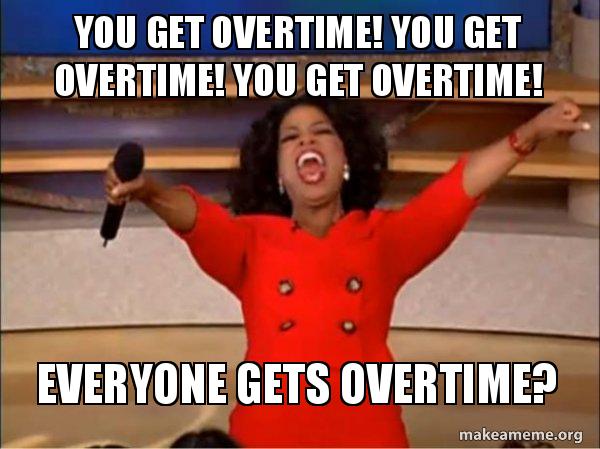Share this
What Do the New Overtime Regulations Mean for You?
by Marissa Malone on Thu, May 19, 2016

For the first time in 12 years, the Department of Labor announced that the Final Rule for overtime regulations will extend coverage to approximately 4.2 million Americans who are currently exempt.
So what does this mean?
Will everyone receive bigger paychecks and more leisure time? In some cases, this may be true, however you can't bank on it. Some employers see this new Rule as a “career killer” rather than helping to restore middle-class jobs - but at the end of the day, this rule was implemented to address one dilemma: employers need to regulate workers’ hours or practice fair pay.
So, what's going to change under the Final Rule?
Salary basis test - The Obama administration is going to double the current salary threshold from $23,660 to $47,476. So, if you earn a salary under $47,476 – you are now eligible for overtime pay (pending the duties test), but there are caveats to be aware of that could affect your paycheck (see below).
Salary threshold will automatically increase – From now on, legislative changes will not be necessary to increase the salary threshold. The standard salary level requirement will automatically update every three years to keep pace with inflation.
The duties tests – Salary level isn’t the only criteria when considering your overtime status. Employees’ job duties play a role in exempting an employee from overtime pay and this is reflected by the duties test. At the moment, the Final Rule does not affect exemption rules for executive, administrative, professional, computer analysts, or sales workers – to get the full scoop on the guidelines for exempt employees, click here.
Before the Final Rule becomes effective on December 1, 2016, you can expect many more conversations to sprout – especially with the Presidential election ahead...
In addition to the outcome of the election, the efficacy of this Rule will be dependent on how business owners react to the change. Will they adhere to the policy and muster up the funds to cover overtime costs? Or will they look to balance out / cut costs by hiring more part-time employees, adjusting benefits packages, limiting work hours, or adjusting base pay? At this point, only time will tell.
Share this
- October 2022 (2)
- September 2022 (1)
- August 2022 (1)
- July 2022 (4)
- June 2022 (3)
- May 2022 (2)
- February 2022 (2)
- May 2020 (2)
- April 2020 (8)
- March 2020 (6)
- February 2020 (4)
- January 2020 (2)
- December 2019 (3)
- November 2019 (2)
- October 2019 (9)
- September 2019 (6)
- May 2019 (4)
- April 2019 (9)
- March 2019 (7)
- February 2019 (10)
- January 2019 (4)
- December 2018 (12)
- November 2018 (6)
- October 2018 (4)
- September 2018 (6)
- August 2018 (14)
- July 2018 (8)
- June 2018 (7)
- April 2017 (1)
- February 2017 (5)
- January 2017 (8)
- December 2016 (8)
- November 2016 (3)
- October 2016 (7)
- September 2016 (8)
- August 2016 (7)
- July 2016 (6)
- June 2016 (9)
- May 2016 (7)
- April 2016 (9)
- March 2016 (8)
- February 2016 (6)
- January 2016 (8)
- December 2015 (7)
- November 2015 (7)
- October 2015 (7)
- September 2015 (8)
- August 2015 (11)
- July 2015 (8)
- June 2015 (4)
- May 2015 (5)
- April 2015 (4)
- March 2015 (4)
- February 2015 (7)
- January 2015 (8)
- December 2014 (5)
- November 2014 (2)



No Comments Yet
Let us know what you think